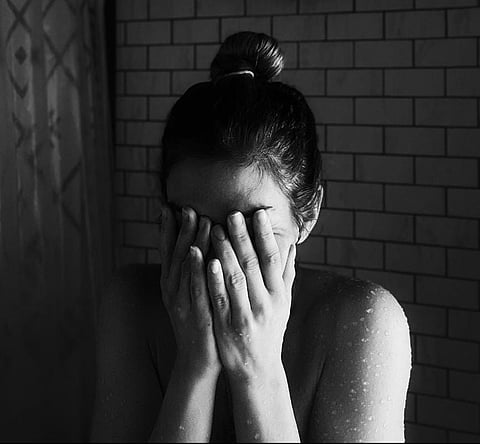
- Home
- न्यूजग्राम
- NewsGram USA
- India
- World
- Politics
- Entertainment
- Culture
- Lifestyle
- Economy
- Sports
- Sp. Coverage
- Misc.
- NewsGram Exclusive
- Jobs / Internships

Children and teenagers may find it particularly difficult to cope with panic attacks. (Unsplash)
Panic Attacks
When there is no immediate danger or obvious reason, a panic attack is a rapid bout of great terror that results in significant physical symptoms. Panic attacks can be extremely terrifying. You might believe you are losing control, experiencing a heart attack, or even going to pass away when panic attacks strike.
Recognise the Signs -
An anxiety episode can strike at any time, even under unsettling circumstances. You can be in bed, out for a walk or at a restaurant. You experience a sudden, intense wave of fear. This results in bodily symptoms such a racing heart, shaking, sweating, shortness of breath, nausea, and chest pain. It may go for five to twenty minutes. You can develop strategies to thwart attacks once you learn to spot them coming.
Chat with yourself -
Remind yourself that you are experiencing anxiety and not actual danger when you feel a panic attack coming on. You might even attempt to confront the fear head-on. Develop a go-to statement like "I'm not afraid" or "This will pass" as a response.
Don't distract yourself -
The healthiest way to handle a panic attack is to accept it, no matter how alluring it may be to try to divert your attention elsewhere. Don't attempt to combat your symptoms. But keep telling yourself they are only temporary.
Breathe Through It -
Get your breathing under control because an attack could cause you to breathe quickly and shallowly. Shut your eyes. Put your hand in the space between your belly button and your ribs. Inhale slowly and deeply through your nose. Then softly exhale via your mouth all that air. The hand will move up and down on your belly. You can count from 1 to 5 on each inhalation and exhalation if it helps. You ought to begin to feel better within a little while.
Attack with H.A.L.T
H.A.L.T. stands for these four negative emotions: hunger, rage, loneliness, and exhaustion. They may act as triggers if you are prone to panic attacks. When symptoms appear, ask yourself if you're hungry. Am I furious? You can take action to repair the situation once you identify what's wrong.
In conclusion, children and teenagers may find it particularly difficult to cope with panic episodes. Their development and learning may be hampered by severe panic disorder. However, panic attacks can be challenging to control on your own, and they might worsen if left untreated.
